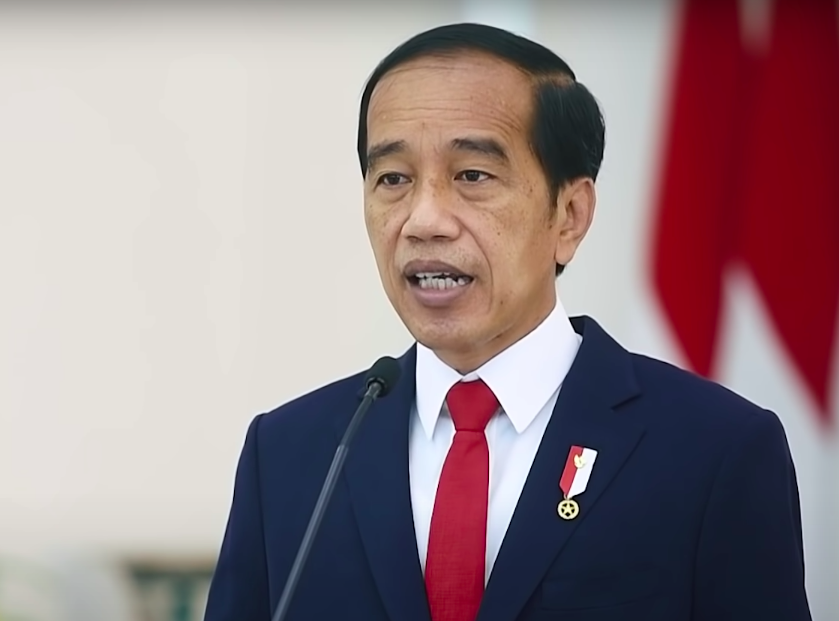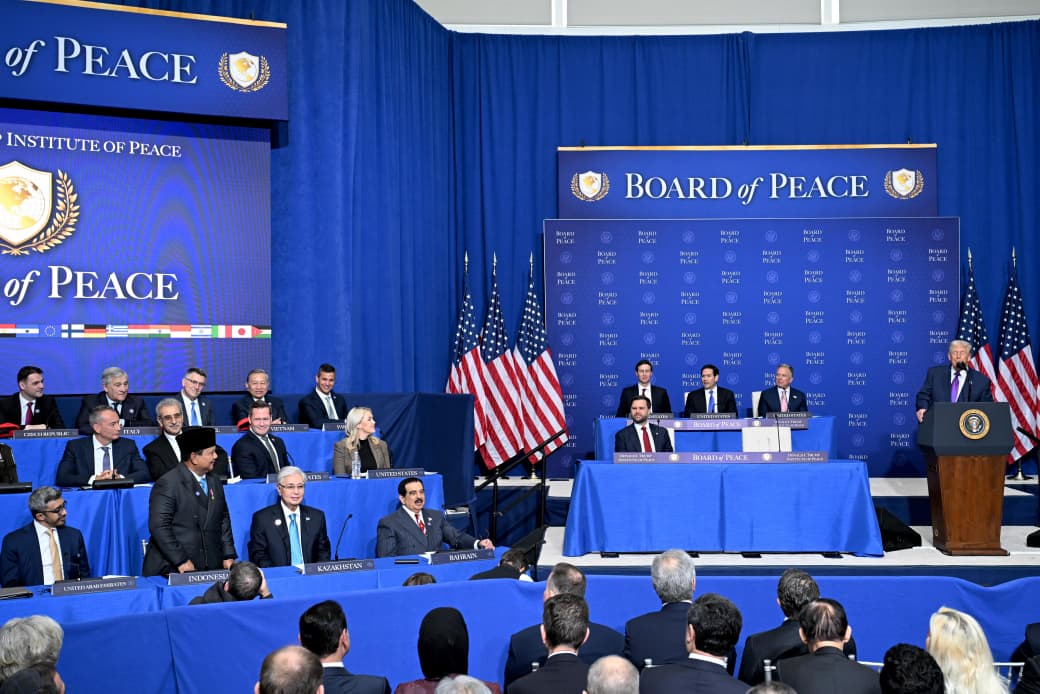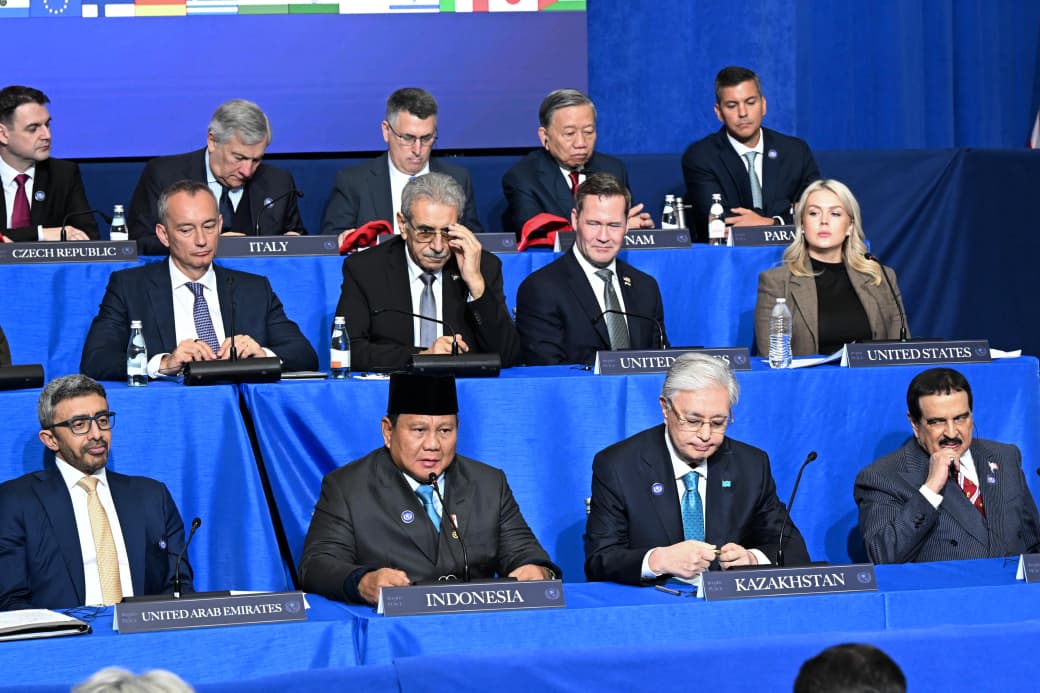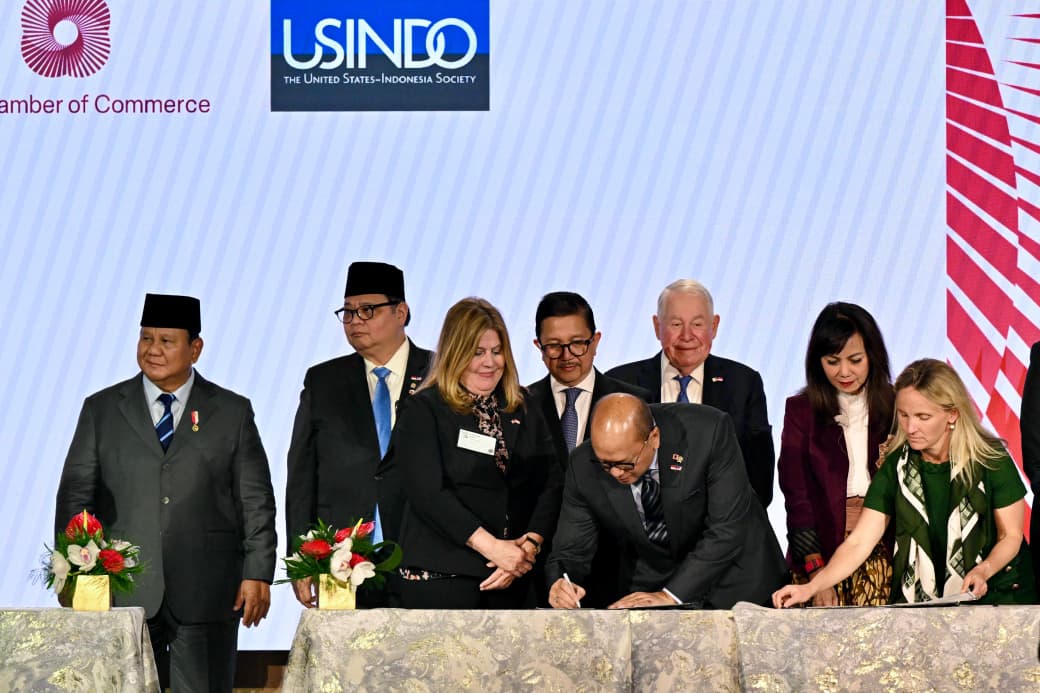President Jokowi: COVID-19 Pandemic is Momentum to Boost Inclusive, Sustainable Economy in ASEAN

President Joko Widodo
The ongoing COVID-19 pandemic could be seized as an opportunity to undertake structural reforms for the sake of inclusive and sustainable economy in the ASEAN region, President Joko “Jokowi” Widodo has said.
“In dealing with the current pandemic, we not only want to recover but also to seize the opportunity to undertake structural reforms for the sake of inclusive and sustainable economy in the ASEAN region,” the President said in his keynote speech at the ASEAN Business and Investment Summit (ABIS) held virtually on Monday (25/10).
The President asserted that efforts to tackle the pandemic do not deter Indonesia from carrying out structural reforms.
“Indonesia has enacted Omnibus Law, Job Creation Law to improve investment climate and boost inclusive economic growth that will generate more jobs. We also amended the taxation law with the same objective,” he added.
He also said that Indonesia intended to carry on these structural reforms and respond to its institutional weakness and work ethics during the COVID-19 pandemic.
“In fact, we make the best use of the formidable challenge of the pandemic to strengthen ourselves in facing future challenges. I hope it also applies to Southeast Asia region. As a united economic community, ASEAN as a region must learn from the crisis and make a fundamental self-improvement in the region,” he stated.
Furthermore, the President also told that there is a new hope after 20 months of facing the daunting COVID-19 pandemic. In the past week, the number of COVID-19 cases in ASEAN declined by 14 percent, far exceeding the global average which fell by 1 percent.
“The situation will certainly build up ASEAN internal and external trust to resume activities and to speed up economic recovery. Nevertheless, we must remain vigilant considering the increase in cases in a number of countries,” he said.
He went on to say that common vision, spirit of collaboration, and unity in action of ASEAN member countries are the main keys to ASEAN economic revival.
On that occasion, President Jokowi mentioned three points of note.
First, maintaining health care as the region’s top priority.
“Our short term agenda to speed up vaccination and equally distribute vaccines in all countries in the region must be implemented immediately. We must achieve the target to vaccinate 70 percent of ASEAN population as soon as possible. The Government and businesspersons need to join hands in synergy to make joint efforts,” he said.
As for medium-term agenda, he said, the ASEAN needs to establish health crisis protocols to make the region more resilient to future health crisis.
Second, the President underscored the need to speed up economic recovery in ASEAN through reactivation of safe travels, including safe tourism.
According to UN-WTO, the level of restriction implemented in Southeast Asian countries is the highest in the world, which is at 82 percent. As the COVID-19 situation getting more under control, the President expected the restrictions to be relaxed, as well as the mobility, while still ensuring the safety from the risks of pandemic.
“ASEAN Travel Corridor Arrangement Framework initiated by Indonesia last year must be soon implemented. Recognition of vaccine certificates in the region including interoperability of vaccine system must be approved immediately. Travel regulations for vaccinated individuals who declared healthy and tested negative for COVID-19 need to be established, namely the Vaccinated Travel Lane,” he remarked.
According to the President, the economic drive can be stimulated if all countries in ASEAN immediately facilitate a safe mobility of people. In fact, Indonesia has also gradually re-opened Bali for safe tourism with strict health protocols.
“Indonesia reopened Bali after fully vaccination rate in the province reached 84.8 percent. Indonesia will also gradually re-open other regions that have fully vaccination rate of more than 70 percent,” he said.
Third, the President emphasized that adaptation of regional economic activities toward digital economy must be accelerated in all countries. He added that digital technology could be the most effective solution to make up for limited mobility and in-person interactions in our people’s economic activities.
“As a region with the world’s fastest internet growth, ASEAN has enormous digital economic potentials. Amid the pandemic, digital economy grew by US$100 billion in 2020. This could be a stepping stone for economic growth in our region,” he said adding that the Indonesian Government has drawn up the Digital Indonesia Roadmap for 2021-2024, as a strategic guideline for Indonesia’s digital transformation.
He also affirmed the Government’s support for ASEAN to become a digitally connected community. Indonesia’s digital economic value is very promising which is estimated to reach US$124 billion in 2025, equivalent to 40 percent of the total value of Southeast Asia’s digital economy, he added.
“To date, Indonesia has 2,229 of startup companies, the fifth largest in the world. Indonesia also has one decacorn and six unicorns. We are also welcoming investment opportunities as much as possible in Indonesia’s digital economic sector,” he said.
In his speech, President Jokowi expressed hope that ASEAN’s economy will not only recover but also improve and grow together in a fair and sustainable manner.
“Our joint swift actions in handling health issues, reactivating safe travels, and speeding up a fair digital economy are our common gateway to recover and make advancement,” he remarked.
For the record, the ABIS is an annual event organized by the ASEAN-Business Advisory Council (ABAC) which serves as a forum for ASEAN leaders and other countries to discuss related issues on economic cooperation, investment, and economic integration. (FID/UN- SETKAB PR) (RAS/MUR)







